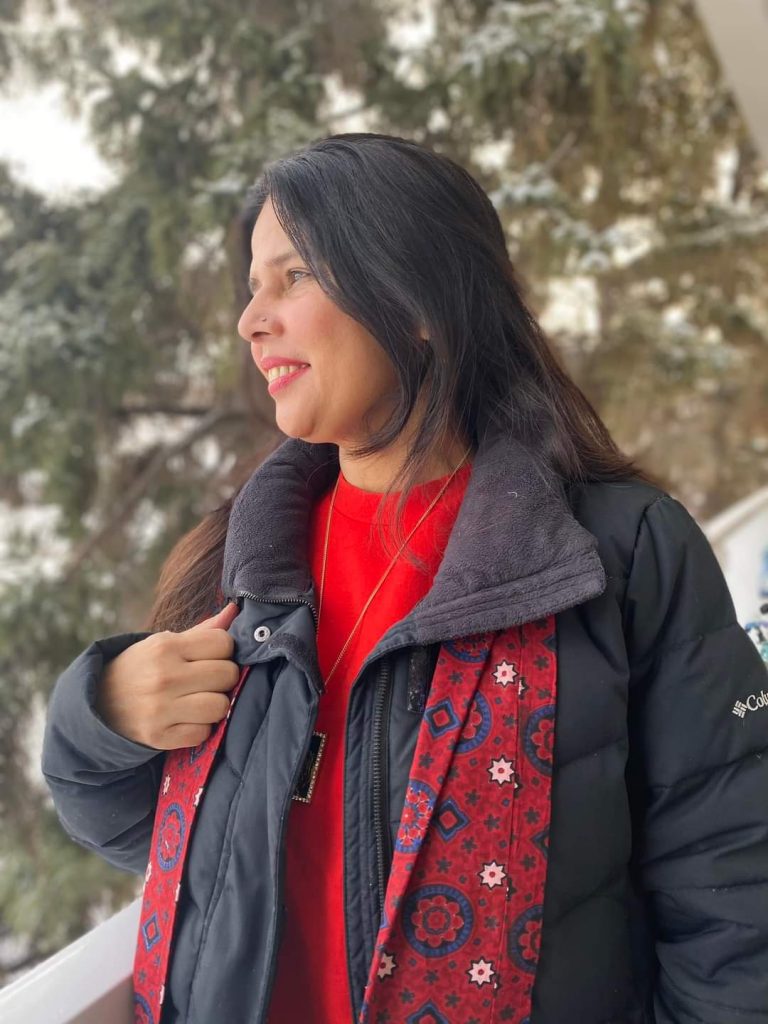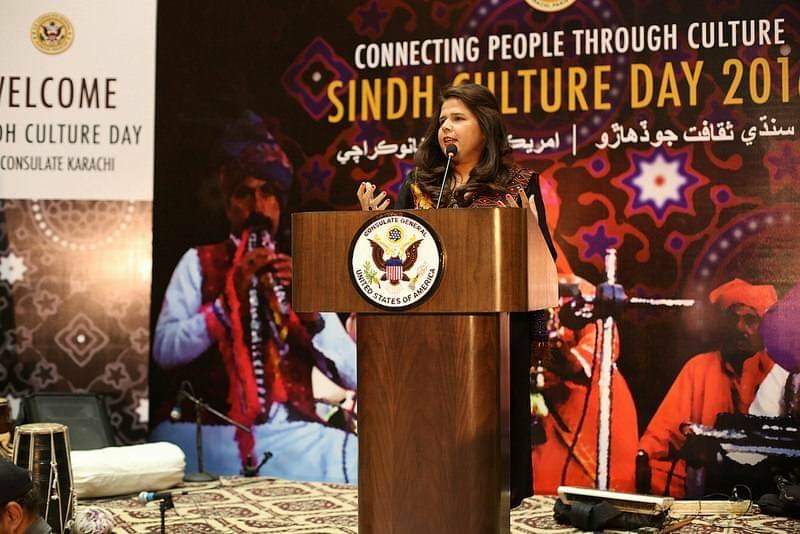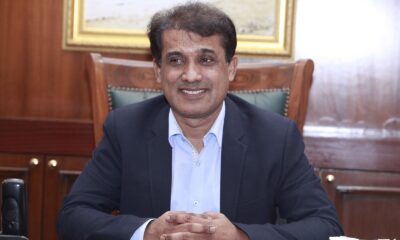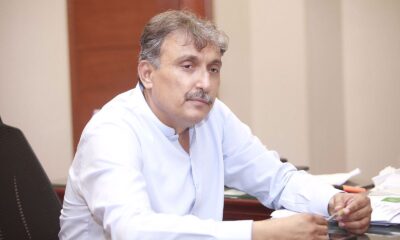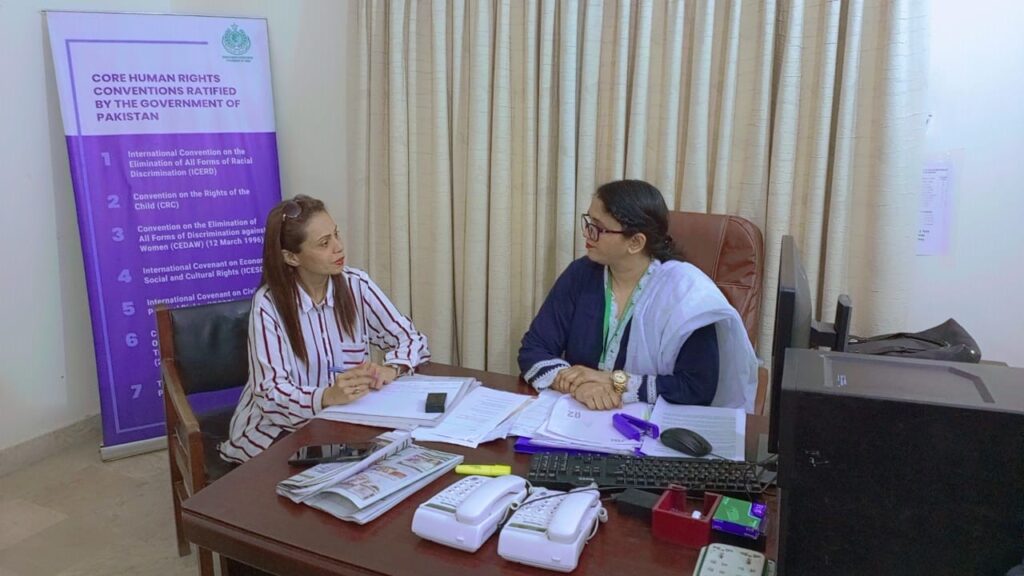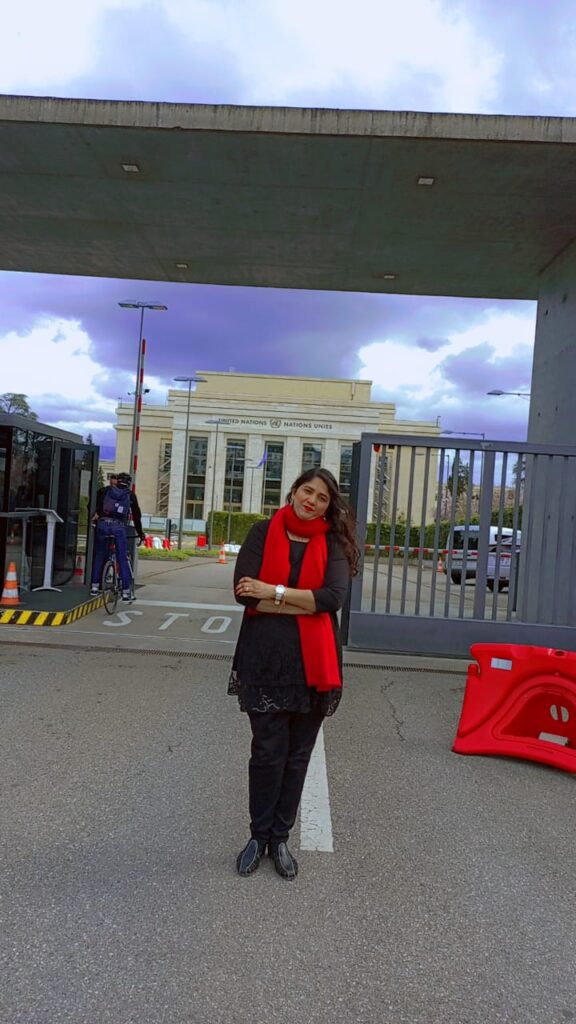KARACHI: This story reminds us of our school days when we read an article published by a prominent newspaper in Sindh about a girl who came back from Dubai and met her incarcerated father in the Central Jail of Karachi.
A few days later, a photograph emerged capturing this heartwarming moment, featuring a young girl with an adorable baby haircut embracing her father. Overwhelmed with joy, she couldn’t contain her emotions. That girl was Aseefa Bhutto, who was embracing her imprisoned father, Asif Ali Zardari.
The joy of their reunion was palpable, evident on their faces. As the time progressed, the dynamics shifted, and that once-imprisoned individual assumed the role of the President of Pakistan. The world witnessed the transformation of the young girl, now a grown-up, concealing the grief of her mother’s martyrdom within her, while radiating a smile in the halls of the President’s House. As they entered, her father offered support by placing his hand on her shoulder, capturing a photograph of their arrival, both wearing smiles that convey the message that democracy is the best revenge.
Again, there is a conspiracy to weaken Pakistan. The stability of Pakistan’s democracy cannot be tolerated by enemies. PPP Co-Chairman Asif Ali Zardari is once again being targeted due to personal grudge. The accusation is the same as the old one that has neither head nor foot. In this difficult time, the girl again appears in public and hugs her father while he was being arrested, gives him encouragement and then she holds her father’s hand. From getting out of the armored car to climbing the courtroom stairs, she is seen holding her father’s hand in every appearance.
She possesses a unique demeanor. She tends to emerge when faced with difficult circumstances, while maintaining a quiet presence in tranquil times, often found engrossed in books in an inconspicuous corner. The composition of her character remains a mystery, leaving one curious about her nature and resilience.
She appears resolute and consistently retreats into the background after achieving success. Whenever the topic of democracy arises, she emerges as the revered hero of Sindh, known as “Bhagal Bai”, and stands by her brother, offering support for the strength and stability of Pakistan. At times, she faces unwarranted criticism, as she willingly endures the path she has chosen, adhering to the belief that criticism comes with the territory. Undeterred, she remains focused on her work, as success perpetually accompanies her journey.
In recent days, Pakistan found itself on the brink of a financial crisis due to the stubbornness and obstinacy of an egotistical individual. Once again, discussions about the threat to democracy surfaced, with a potential for violence. However, standing together like Fatima Jinnah, a significant and peaceful long march took place, marking a historic moment in Pakistan’s history. This collective effort resulted in dispelling the dark clouds that loomed over democracy, and once again the proponents of democracy emerged victorious.
It is important to note that this victory came at a cost, including the sacrifice of Aseefa Bhutto, who sustained severe injuries from a drone strike but bravely rejoined the convoy, her injured eye a testament to her resilience. Her countenance on this occasion reflected a radiant glow, evoking a sense of maternal warmth and generating an inspiring energy.
Aseefa, whom Asif Zardari once mentioned in an interview stating that he was initially alone but now has two lions, Bilawal and Aseefa. Aseefa, the beloved princess of Shaheed Benazir Bhutto, has indeed demonstrated President Zardari’s words to be true, in her own unique style. She carries forward the legacy with grace and determination.
It is often said that the youngest children receive the most love and affection, and Aseefa, being the apple of many eyes due to her young age, is no exception. However, this abundant pampering and love have not spoiled her; instead, they have contributed to her maturity and growth.
A precious princess entered the world on February 3, 1993, in the household of Shaheed Ms. Benazir Bhutto and Asif Ali Zardari. It is a testament to the depth of Bibi’s affection for Asif Ali Zardari that she chose to name their daughter Aseefa. Aseefa, being the daughter of Bibi and Asif Zardari, carries the legacy of Benazir within her. She is the granddaughter of the late Shaheed Zulfiqar Bhutto and the great-granddaughter of Hakim Ali Zardari, known for his principled politics in Pakistan.
Additionally, her lineage can be traced back to Hasan Ali Effendi, the visionary behind Sindh Madrasatul Islam, a pioneering institution that revolutionized education in Sindh. With such a distinguished lineage of respected and highly educated individuals, it is no wonder that Aseefa Bhutto Zardari has grown up to assume important responsibilities, such as overseeing esteemed educational institutions like SZABIST in Sindh.
Aseefa Bhutto, who holds a bachelor’s degree in Economics and Politics from Oxford University, has also obtained a master’s degree in Global Health from University College London.
Aseefa Bhutto grew up in the shadow of the late Ms. Benazir Bhutto, who played a significant role in starting the polio immunization program in Pakistan. In response to baseless debates and fatwas claiming the harm and illegality of polio drops, Shaheed Benazir Bhutto took a powerful step. She inaugurated the immunization program by personally administering polio drops to her own daughter, Aseefa Bhutto, at the Prime Minister’s House. This act effectively countered the opponents and debunked the rumors surrounding the safety of polio drops. Aseefa Bhutto, deeply influenced by her mother’s mission, resolved to carry it forward and dedicated herself to the fight against polio in Pakistan.
As the Ambassador of the United Nations campaign for polio eradication, Aseefa Bhutto Zardari undertook comprehensive measures to eliminate this potentially fatal and contagious disease from the country, ultimately striving for a polio-free Pakistan. In pursuit of this cause, she pursued her master’s degree to strengthen her knowledge and ability to work towards improving healthcare, particularly in the context of polio eradication in Pakistan.
She is the second Pakistani lady, following in the footsteps of the Shaheed Benazir Bhutto, to address the Oxford Union at Oxford University. In her address, Aseefa Bhutto Zardari acknowledged the sacrifices made by her grandfather and emphasized the importance of stability. She shared a poignant anecdote about her grandfather, Shaheed Zulfiqar Ali Bhutto, who wrote to her mother from his prison cell, asking what gift he could send her. He replied, “Yes, I hand you over to the people. You are the custodian of the world’s greatest civilization, and it is your duty to strengthen it.”
Difficult circumstances compelled Shaheed Benazir Bhutto to enter politics after her father, Prime Minister Zulfiqar Ali Bhutto, was unjustly removed from power, imprisoned, and executed. She emerged as the leader of the Pakistan People’s Party (PPP), which was established by her father, and went on to become the first female head of government in a Muslim-majority country.
On the occasion of the 70th birthday of Shaheed Benazir Bhutto, Aseefa Bhutto paid tribute to her and recognized her exceptional leadership during challenging times. She emphasized that Shaheed Benazir Bhutto led Pakistan through difficult and trying moments, and highlighted that her legacy can serve as a guiding light to navigate the current darkness.
Aseefa Bhutto Zardari displayed confidence from a young age. During her time in exile, she was interviewed by senior journalist Sohail Waraich. When asked about what she liked most about Pakistan, Aseefa Bhutto responded in a confident tone, expressing her belief in the country’s potential for greatness. She continued to work diligently for a better Pakistan, particularly in the healthcare sector, alongside her brother Bilawal, even though she prefers not to seek personal recognition for her efforts. Her quiet dedication and achievements speak for themselves.
Aseefa was just 14 years old when her mother, Benazir Bhutto, was martyred in 2007. Their lives have been intertwined with the politics of their parents, both in life and in death. They lead extraordinary lives, facing the challenges and uncertainties with the hope and courage that tomorrow will bring a brighter day.
As siblings, they carry the weight of the political legacy passed down from their parents, Benazir Bhutto and Zulfiqar Ali Bhutto. The party leadership firmly believes in the importance of a robust democracy, recognizing that it cannot thrive without ensuring the well-being and empowerment of the less privileged members of society.
[ The writer is Deputy Director, Information and Archives Department, Government of Sindh. He regularly contributes articles in regional and national dailies ]


 Sindh Icons2 years ago
Sindh Icons2 years ago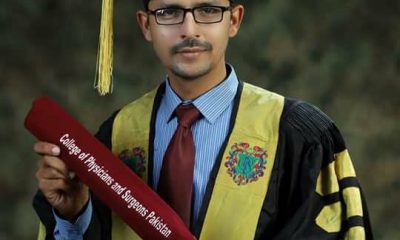
 Interviews2 years ago
Interviews2 years ago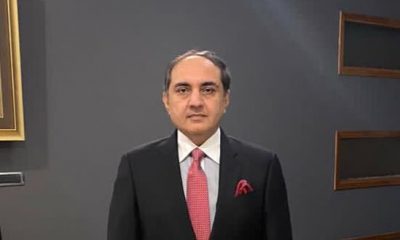
 Sindh Icons2 years ago
Sindh Icons2 years ago
 Sindh Icons2 years ago
Sindh Icons2 years ago
 Culture/Tourism2 years ago
Culture/Tourism2 years ago
 Sindh Icons2 years ago
Sindh Icons2 years ago
 Sindh Icons1 year ago
Sindh Icons1 year ago
 Sindh2 years ago
Sindh2 years ago

